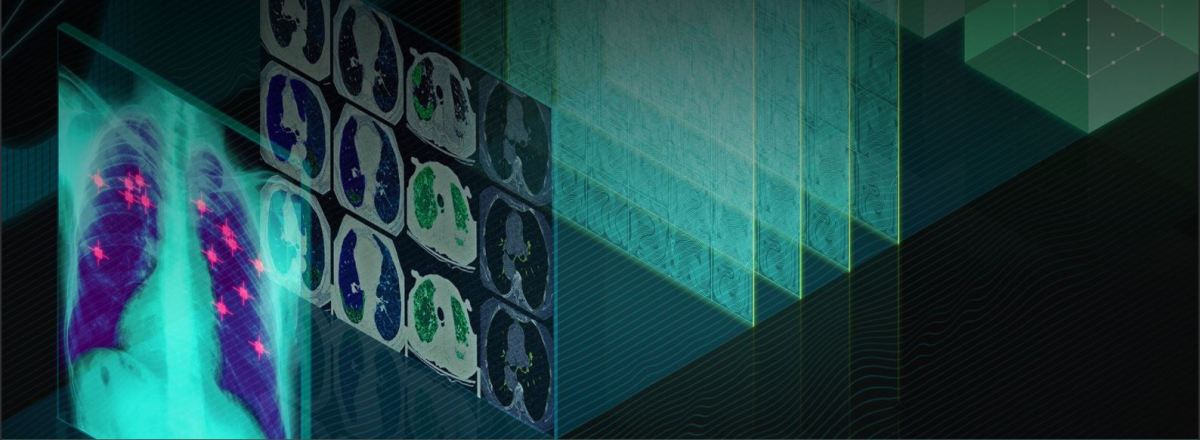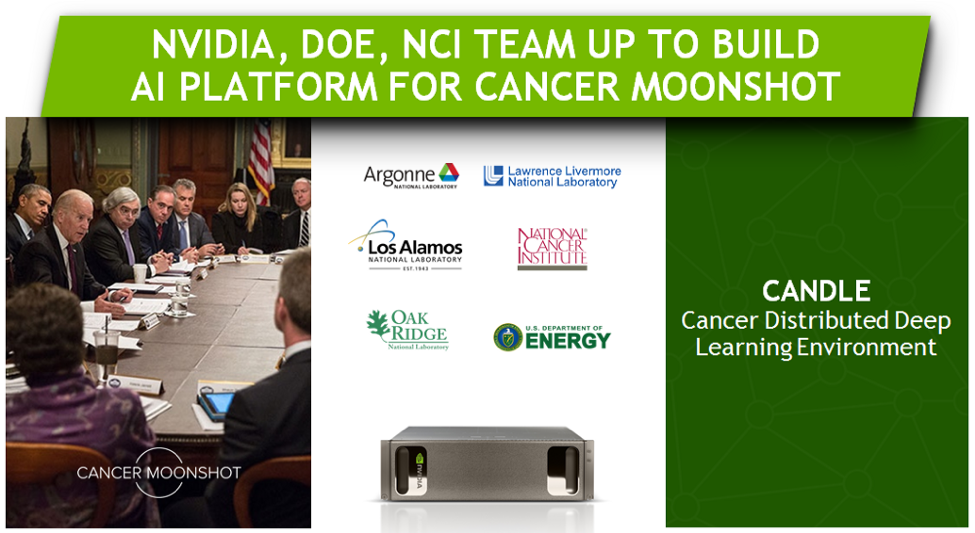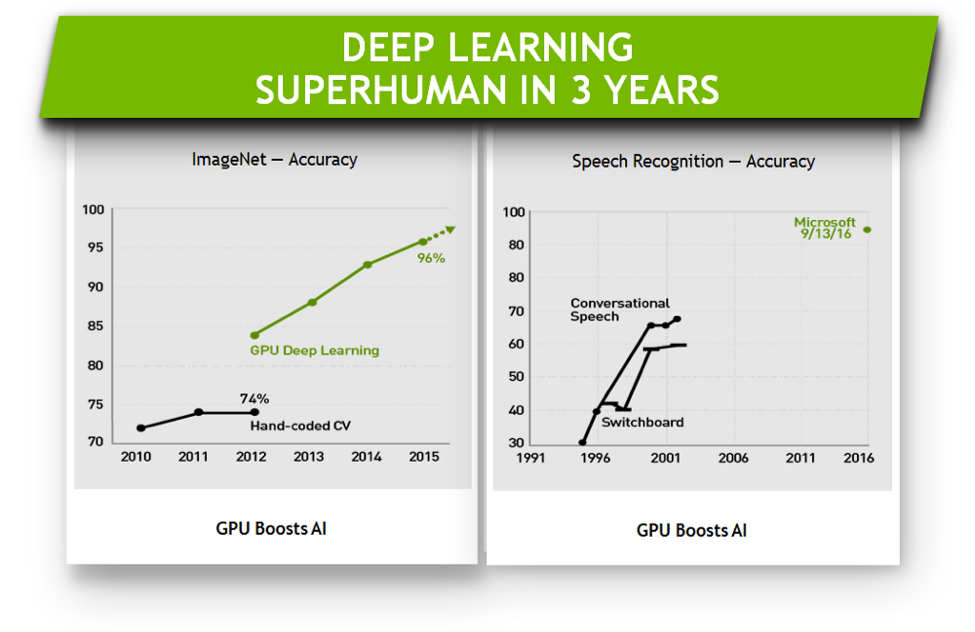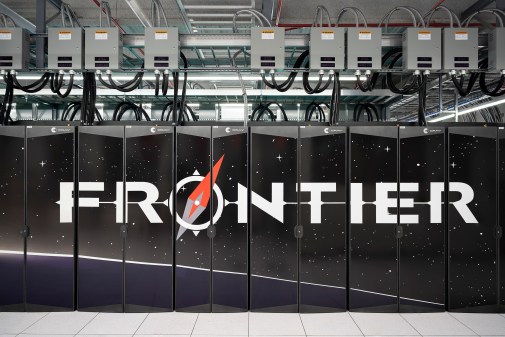
Cancer is the epidemic of our time – over half a million Americans die each year from cancer – more than 1,500 each day. 15 million of our family members, friends, and colleagues are currently living with this disease.
This is why we were excited when the White House announced the Cancer Moonshot program earlier year, declaring a goal to make a decade worth of advances in cancer prevention and treatment in just 5 years.
NVIDIA has teamed up with the National Cancer Institute, the U.S. Department of Energy, and national research laboratories to build a common discovery platform for cancer called CANDLE, based on today’s state of the art technology artificial intelligence (AI).

The field of AI has made huge leaps in the last five years. Using Deep learning — a technique where computers teach themselves from massive volumes of data — we have already achieved superhuman results. Take, for example, the field of speech recognition: researchers for the last 20 years had achieved an accuracy rate of only 70%, which was considered unusable. With deep learning on NVIDIA GPUs, Microsoft and Baidu have already surpassed human capability in speech recognition in just 3 years.

We now know that AI required three key elements to be practical: massive amounts of data, sophisticated algorithms and high-performance parallel processors (GPUs). We will apply those same three ingredients, feeding petabytes of cancer data from the NCI into CANDLE, a deep learning platform for the nation’s most advanced GPU-accelerated supercomputers.
NVIDIA engineers and computational scientists will contribute to this platform by developing an AI software framework optimized for the latest supercomputing infrastructure, with the goal of achieving 10X annual increases in productivity for cancer researchers.
The CANDLE development is targeted at three precision medicine pilot projects. Deep learning techniques are essential to each.
- CANDLE will help researchers discover the underlying genetic signatures in the DNA and RNA of common cancers. These signatures can help researchers tap into molecular data collected by the Cancer Moonshot Initiative to predict how patients will respond to treatment.
- CANDLE will accelerate the molecular dynamic simulations of key protein interactions. This will help researchers understand the underlying biological mechanisms creating conditions for cancer.
- CANDLE will automate information extraction and analysis of millions of clinical patient records to build a comprehensive cancer surveillance database of disease metastasis and recurrence.
Complicated stuff. But the goal of all these efforts is simple: expedite individual treatments, discover new treatments faster, and more accurately predict how each patient’s cancer will evolve.
These are hard challenges. They’ll require great determination and coordination among many researchers and scientists. By using deep learning we hope to achieve the goals of the Cancer Moonshot, making giant leap for mankind.
To learn more, we will be continuing the discussion on the battle against cancer with Jerry Lee, Health Science Director at NCI and Cancer Moonshot Taskforce member, at GTC DC 2017.




